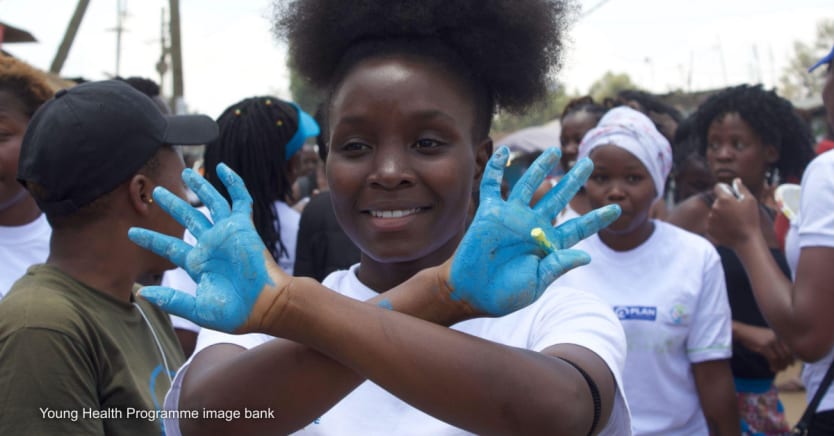
Young people have always been critical drivers of change. From Soweto, where children rose up against apartheid, to Malala Yousafzai standing up for girls’ education, to Greta Thunberg and students striking to demand action on the climate crisis, young people have the ability to question the status quo and bring fresh and innovative approaches to tackling societal challenges.
Yet often their ideas are too readily disregarded by those with the power to make a change. Ageism of this kind affects all aspects of young people's lives, including their health. The World Health Organization defines ageism as stereotypes, prejudice, and discrimination toward others based on age. It is particularly evident when it comes to noncommunicable diseases, or NCDs, which are the leading cause of premature deaths globally and a growing challenge everywhere.
The most prevalent NCDs are cardiovascular and respiratory diseases, cancers, and diabetes — all of which are commonly, but wrongly, considered to be a risk for mainly older people. An assumption that these and other NCDs, including mental ill-health, do not affect the young can contribute to failures in health promotion and patient care. Along current trajectories, a teenager living in nearly any part of the world today is more likely to have their adult life cut short by an NCD than by any other disease or accident. Despite this stark reality, ageism stands in the way of designing messages to encourage young people to adopt healthy lifestyles that would lower their chances of contracting life-limiting and life-threatening conditions.
As the world came together to celebrate International Youth Day on Aug. 12, this year’s theme of intergenerational solidarity was especially poignant in the fight against NCDs. After all, the best way to show concern for future generations is by giving them the greatest possible chance to live long, healthy, and dignified lives.

Building awareness
There are successful examples from across the world that show youth can help to deliver impactful health policies and that adding their voices to the discussions and adopting their ideas in a meaningful manner has the potential to improve physical and mental health outcomes across communities and countries.
This is a tactic that has been deployed successfully through AstraZeneca’s Young Health Programme. Since its launch in 2010, YHP has reached more than 40 million young people around the world with vital and relatable information about preventing NCDs.
YHP initiatives are implemented in collaboration with local partners and governments to identify the major NCDs affecting their adolescent populations and then institute community-level projects to get them involved in learning and spreading the messages.
One of the program’s core aims is to sensitize young people to the high risk they themselves face from NCDs. Research has revealed that NCDs are linked to behavior that can begin at a young age. Concrete measures to address key risk factors such as tobacco use, unhealthy diets, excessive alcohol consumption, and low physical activity are often the cheapest and most effective ways of preventing NCDs.
For instance, in Turkey, the Hey Youth! Take Action! project promoted healthy diets and physical activity to fight obesity and diabetes, and targeted school-age kids and teenagers. Workshops and seminars were held in schools and pre- and post-tests were conducted to monitor the changes in students’ level of awareness. A similar project in Jordan is specifically targeting tobacco use by leveraging parents, educators, and media networks.
Meanwhile in Angola, with support from YHP, UNICEF worked with partners and the Ministry of Health to launch U-Report, a digital platform that activates young people throughout the country. UNICEF has launched polls to collect young people’s opinions and attitudes about different health topics and has also used the platform to share information and raise awareness on NCD risk factors.
Public-private partnerships are key
These examples highlight the power of public-private partnerships to promote behavior change to curb the burden of NCDs, especially in resource-poor settings when health budgets are already overstretched. It is concerning that these diseases disproportionately affect people in low- and middle-income countries where more than three-quarters, or 31.4 million, of global NCD deaths occur.
To this end, in partnership with UNICEF, YHP launched an accelerator program in seven countries — Angola, Belize, Brazil, Indonesia, Jamaica, Papua New Guinea, and South Africa — to promote healthier lifestyles and environments. The project teams up with young leaders, disruptors, artists, social entrepreneurs, researchers, professionals, and activists in each country and supports them to become NCD advocates who raise awareness on how their peers can lead healthier lifestyles, advocate for safer environments, and collaborate with policymakers to co-create effective policies that reach young people.
Rising rates of NCDs are not a legacy that any of us would wish to pass on to the next generation. By empowering our youth, we can build a healthier and more resilient world for all.








